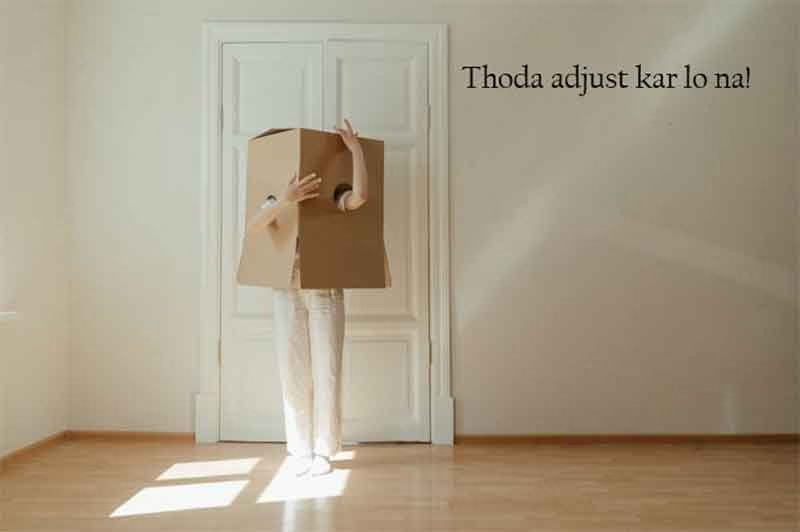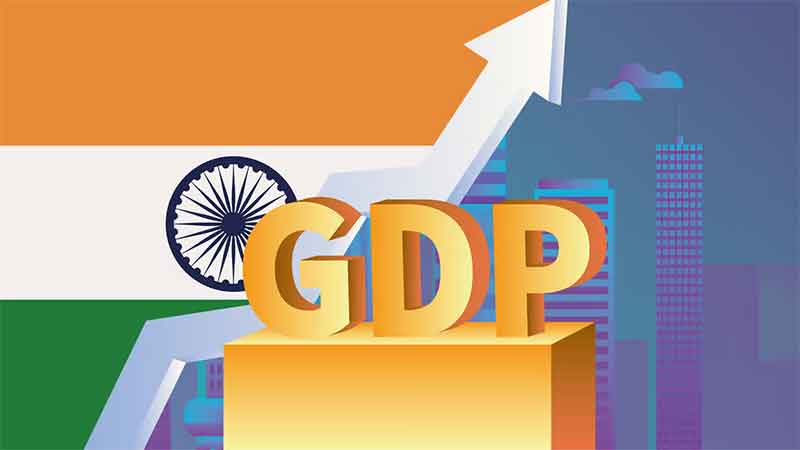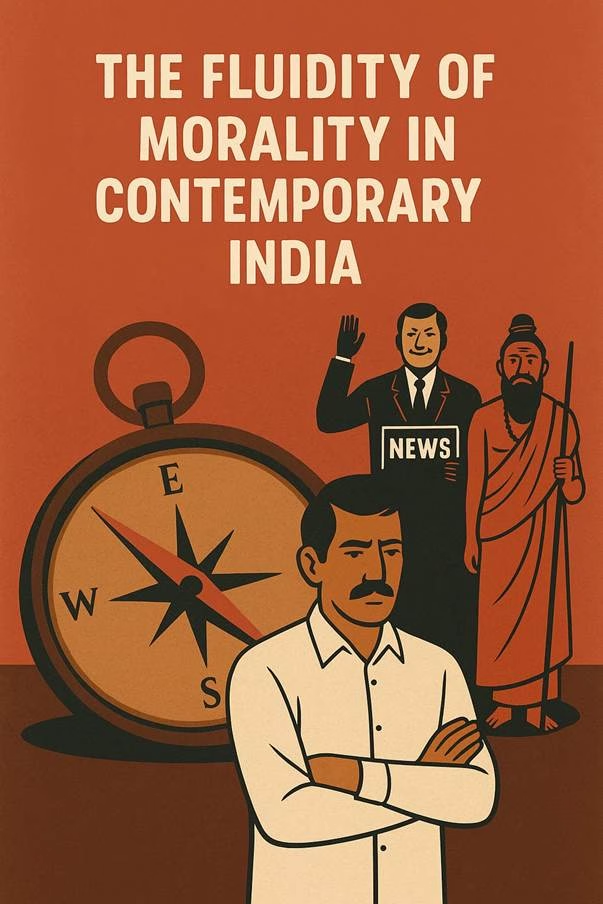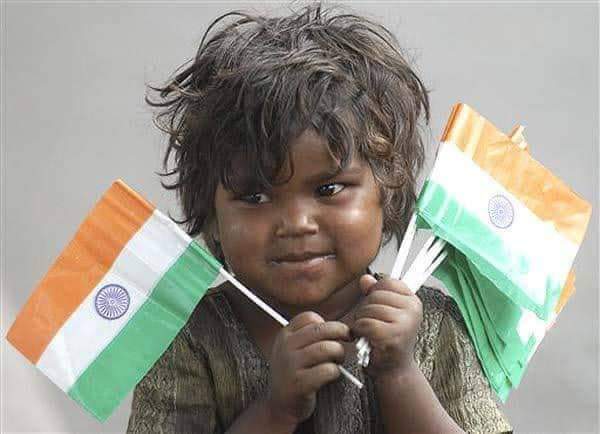
The present ruling dispensation is out to fulfill its dream of ‘one India, one religion, one language, one culture, one economy, and one party under one leader’ and to change Indian Constitution accordingly. The ruling party has absolute majority in the Parliament, but does not enjoy the sanction of the majority Indians. Nearly two-third of the electorate who cast their votes opposed this party. Despite such a reality prevailing, our authoritarian ruler believes that he and his party has every right to lead the country to their dream destination basing on their majoritarian politics and by spitting venoms on religious minorities and critics while ignoring the rights and interests of people belonging to various lower strata in our society and economy. The authoritarian ruling dispensation is using religion as a tool to achieve their political goals in such a huge scale unforeseen in Indian history.
One may be tempted to compare the present Indian situation with that of Tsarist Russia prevailing 120 years ago. Russia was then ruled by an autocracy, with a completely enslaved press, in a period of desperate political reactions in which even the tiniest outgrowth of political discontent and protest was persecuted. And young Russian revolutionaries, who were opposing Tsar’s rule, were children of Orthodox priests or persons associated with religious sects. It is also worth noting that the traditional Russian belief in autocracy, the desire for an all-powerful savior, and the contempt for legal formalities and processes had left its mark on them.
It cannot be denied that Indians in general are very much religious. They have faith on local customs, which are taken as religion. They traditionally believe that an all-powerful king or leader belonging to the upper cast can change the destinies of the ruled millions. The most of the members of the present ruling dispensation belong to upper casts. They are out to capitalize this mindset of the people.
At the same time, in post-independent India, we enjoy democracy despite many weaknesses. We have a Constitution framed by Bhim Rao Ambedkar and other best minds of this vast land, a land which have millenniums-old rich and diverse cultures, languages, philosophies and religions. We have democratic institutions despite visible systematic attempts to subjugate or destroy them by the ruling dispensation. Our press cannot be compared with a “completely enslaved press” of the then Russia despite the presence of strong godi media and numerous government attempts to choke dissenting voices. Our judiciary is still independent, albeit so many aberrations in various levels, not excluding at the top. So is true of our bureaucracy.
The predecessors of our present ruling dispensation collaborated with the Raj and did not participate in nation building while in opposition. Now they are busy in undermining the role played by Gandhiji, Nehru and other leaders who fought for our independence and played pivotal roles in building modern India. How can we forget that when India started her independent journey on August 15, 1947, she inherited an economy destroyed by the imperialist rulers? In fact, she had to start from the scratch. We then even had to import safety-
pins! Under the leadership of Nehru India embarked on the path of industrialization, of human resource development, of eradication of illiteracy, poverty, hunger, untouchability and secularism, supported by the policy of peace, non-alignment and good neighbourly relations with other nations near and far. The success of these policies could be understood when we boast of India being one of the leading economies of the world and compare India’s success with that of Pakistan; a state craved out of India and formed basing on religion on August 14, 1947. Contrary to the belief of those who favoured religion-based partition of India and also of our present rulers, latter developments have amply proved that religion itself cannot keep people united. The people of East Pakistan parted away to form Independent Bangladesh on March 26, 1971. Bengali asmita, based on language and culture, played an important role in this repartition.
When we speak of Nehru’s contribution, it does not mean that we are satisfied with what India has achieved post-independence. We have failures too. The most striking one is our failure to lift the underbelly of our population to a decent level, where the minimum basic needs of all are met. Perhaps, we failed to realize properly a fundamental reality: our inner and outer life are based on the labours of other men, living and dead, and we must exert ourselves in order to give in the same measure as we have received and are still receiving. Here lies the importance of human capital and technology in shaping the economy and society.
When we stress the need of creating wealth for the benefit of the people, we believe that wealth is more than just money in a Bank account. There are other forms of wealth, such as human, cultural, environmental, spiritual, material and social capital. At the same time, we cannot afford to forget that wealth (money) is a most important factor which continues over centuries to divide the humans into different classes and is considered synonymous to dominance and authority. We need government policies aimed at equal distribution of wealth, not of poverty. And the present ruler is actually playing havoc with his policies which have substantially increased income inequality.
Globalisation has, no doubt, helped the privileged to reap the benefits of global market place and achieve higher standard of living and comfort levels. At the same time, it has also eventually resulted in the exclusion of large number of adversely affected people and thus increased income inequality.
Today, India is at a cross-road. Our ruler is undermining the values of our Constitution, straining our relations with our neighbours, allowing crony capitalists to exploit mineral resources indiscriminately and thus jeopardizing our environment. Opposed to these policies, we need a vision that values human capital more than financial capital. We need an economy where people at the bottom of the economic pyramid and the most deprived sections of our society benefit the most. Not many people in our country like to see large sections of our people living with poverty and hunger, with inequality and unemployment, under the shadow of discrimination and fear, under the red eyes of the rulers. People want to live in peace with friendly neighbours, in clean environment, and with respect, dignity, equality, opportunities and hope for all. It is hard to believe that our nation can prosper when two-third of our population, the middleclass and the toiling poor, continue to feel deprived.
Our ruler is out to destroy democratic values enshrined in our Constitution endorsed by our people. Despite some weaknesses, we could build a solid foundation of democracy by dint of our strenuous efforts over the decades and thus belied the forecast made by some pundits overseas that our democracy cannot survive. In fact, our ruler is all out to hijack our democracy using majoritarianism and is manipulating social media to promote lies, hate and anger and thus win elections and retain power. He is trying to bring into his grips all the pillars of democracy—the parliament, the executive, the judiciary and the media. What is more alarming, he is even trying to influence the defense forces, too! Unless such efforts are defeated politically, socially, morally and philosophically, unless we can strengthen our democracy, freedom and justice we cannot think of achieving inclusion and deliver equality for all.
A perception is developing in a section of our population that politicians have turned politics into a nasty professional business. Their aim is not to serve the people, but to preserve and promote their own power and position. There is an all pervasive nexus of politicians, business and media to serve the business interests of the rich and thus the real needs of the middle class and the poor are being ignored and betrayed. Such a negative perception about the politicians is making them believe that a rule by the military or a dictator can benefit of the masses. Such a public mindset, though still not so pronounced, prepares ground for the rise of fascism as the mankind had witnessed in Germany, Italy, Japan, Spain and elsewhere before the Second World War.
We boast of youth power. Nice! Our prime minister loves to advice them but never listens to what they really want. Had he asked they might have told him that they wished to have love (not love zihad), a clean environment (not ruining of the environment in the name of development to satisfy the greed of the few), decent home (not inhabitable slums and face-lifting), education (not illiteracy and obscurantism), job (not unemployment and under-employment), health (not disease and malnutrition), family (not feuds), friends (not foes), funs (not anxieties) and of course inclusion (not exclusion based on cast, religion, ideology, etc.). They do not like violence, war, spiting venoms to and lynching of people belonging to other communities and casts.
We have to admit, India is not an inclusive nation, mainly because of millennium-old cast system, which has divided people over 1000 casts and sub-casts, and most deprived are the dalits (untouchables) and the tribals. Lower cast people are looked down upon and regarded as impure by the upper casts which led to the isolation of lower casts in Hindu social life. Despite efforts by some great religious and social reformers (including Gautama Buddha, Gandhiji, Ambedkar and others) it is so deeply ingrained in Indian culture that breaking away from it would require prolonged individual efforts, state intervention and a change in society’s collective consciousness.
Cast inequality and economic inequality (which is more severe here than in most other countries in the world) are interlinked. The deficiencies have induced not only large asymmetries in income and wealth (separating the poor and the very poor from the comfortable and the rich), but also huge social inequalities, such as the low status and terrible social standing of the underdogs of the society of which untouchability is the extreme end.
All hues of politics based on religious fundamentalism and narrow cast identity are strong barriers to our advancement. Experience has shown that divisive politics based on Hindu majoritarianism cannot be countered using soft Hindutwa. An intense ideological battle against such ideas and for religious and cast harmony is the need of the hour. Our ability to reach unity in diversity will be the beauty and test of our civilization.
India needs inclusive growth which calls for real concerns for people at the bottom of the economic pyramid, while also meeting others’ wants and aspirations. It is not a difficult task since we, the people of the world as a whole, now live in an economy of surplus and not of scarcity and we can sustain it provided we decide to produce as much as we need, and are not obsessed in meeting the greed of the haves. For example, the global market of luxury goods is estimated to be around $400 billion a year—twice that of what it would take to eliminate global hunger.
There is a clear distinction between needs and wants. A person’s needs are fundamental to survival, safety and security while wants emerge from our desire to acquire more with our surplus capital. The “use and throw” production philosophy needs to be replaced by the production of durable goods in order to minimize the exploitation and use of mineral and water resources. We need to change our strategy from consumption to conservation keeping in mind that depleting natural wealth cannot be recreated. Such a policy will also help reduce generation of polluting wastes and minimize the adverse impact of climate change.
The United Nations-convened Intergovernmental Pannel on Climate Change has published on August 9, 2021 a report compiled by 234 authors who drew on more than 14,000 scientific studies. The report projects that in the coming decades, climate changes will increase in all regions. For an increase of global warming by 1.5 degree Celsius, there will be increasing heat waves, longer warm seasons. At 2 degree Celsius of global warming, heat extremes would more often reach critical tolerance thresholds for agriculture and health.
If the growth of global warming (caused by carbon emission) level does not stabilize around and below 1.5 degree Celsius, and crosses it, suddenly everything will become very catastrophic. The use of fossil fuel, the major pollutant emitting carbon dioxide, is growing. Sea-level is rising gradually. Pollution levels of water—surface, underground, rivers and seas—are growing putting our echo-system in perils. In fact, mankind’s common properties such as earth, air, water, soil, forests, birds, animals and the environment are in danger.
How to avoid this impending catastrophe? We need to change the mindset. We need to keep in mind what wise men in our ancient times taught us: “The earth does not belong to man; man belongs to the earth.” We need to produce to meet our needs, and not to meet the greed of those who can pay. To meet our basic needs should be the cornerstone of human rights activities. We can clearly see that the industry is always interested in producing for those who can afford to buy, not for those who need it. Does the bottom of the pyramid need frequent new models of, say, cars, smart phones and other consumer durables, or iconic bullet trains, or face-lifting of cities?
Our policymakers are trying hard to make us believe that economic growth will automatically tickle down to the have-nots. But life has proved the opposite. What we need most is an equitable growth strategy that will include, among others, redistribution through progressive taxations on the rich and social transfers. This has to be supported by empowerment of the poor majority.
Science can flourish only in an atmosphere of free speech, discussion and arguments. But random free speech on the achievements of our distant past forgetting the tasks for the present and for the future does not help. We need to innovate. It is about going forward and not looking backwards. We need to bring imagination and problem solving in the centre of education and activities. But our centuries old Brahminical education system is working as a stumbling block. This system gives importance to remembering and reproducing and prioritizes didactic pedagogy, rather than acquiring skill based on job system of learning.
Our highly compartmentalized cast system had worked and continues to act as another serious stumbling block against equitable growth. This cast system, or division of labour, is not spontaneous; it is not based on natural aptitudes. Social and individual efficiency requires us to develop the capacity of an individual to the point of competency to choose and make his own career. This principle is violated in our cast system in so far as it involves an attempt to appoint tasks to individuals in advance, selected not on the basis of trained original capacities, but on that of social status of the parents.
This stratification of occupations, which is the result of our cast system, is positively pernicious. Industry is never static. It undergoes rapid changes. With such changes, an individual must be free to change his occupation. Without such freedom to adjust himself to changing circumstances, it would be impossible for him to gain his livelihood.
We need to use new technologies (computer, internet, web, etc.) not only to enhance efficiency and earn super-profits, but to find new ways to empower people to resolve local, national and global challenges, to fulfill basic human needs, livelihood, income inequality and security. We need to use these tools to help people in the unorganized sector, and others at the bottom of the pyramid, and not to exploit them and the natural resources in the name of growth. We need to use these tools for further democratization of our society and polity.
Innovations in technologies are already delivering. Lots of progress is being made, for example, in health science to improve longevity, reduce pain, enhance life quality, replace body parts, treat cancer, lower infant mortality, produce vaccines and more. Technology offers hope for nutritious new fruits, vegetables and grains, improved building materials, modular housing, durable, long-lasting textiles, smart self-cleaning clothing, intelligent materials, light transport, better light sources, smart glass, advanced sensors and others. We know about creating rich content for learning, training and skills, and enhancing the ability to educate. Unfortunately, only moneyed are reaping the benefits of such innovations. We need to develop social, economic and political systems to enable all strata of the society to enjoy these benefits.
Education is the most critical aspect of empowerment and inclusion of every human being. Unfortunately, new education policy framed by the present government gives more stress on privatization and thus making education a commodity, a lucrative industry to make money for money. Even good education is often seen as a luxury affordable to the rich. The private institutions charge enormous fees which even the middle class guardians find it difficult to afford. The higher educational institutions and universities developed over the years using public funding are being pushed to the walls through gradual reduction of government support. Hiking of tuition fees and other related expenses is making students belonging to economically weaker sections vulnerable. They are finding it very difficult to continue with higher education. Moreover, government-aided educational institutions at all levels, starting from the primary schools to the universities, lack quality facilities because of the apathy on the part of the government.
If we seek to develop a learning system focused more on problem solving rather than just gathering facts and figures, we have to change course contents and teaching methods accordingly. The course materials would be redesigned to meet the multidisciplinary education, emphasizing the challenges we are facing. The Covid pandemic has forced us to use technology, the internet in particular, in a bigger way to continue studies at various levels. This would have been a great leveler provided we had universal access and affordability. Unfortunately, it has severely exposed our rich-poor divide. Many poor students are not able to utilize this opportunity because they cannot afford smart/android phones and internet connectivity.
Course correction in favour of the majority of Indians calls for wider discussion and debate on multiple issues keeping in mind that the future depends on what we do today.
Sunil Mukhopadhyay is a retired journalist and writer
















































